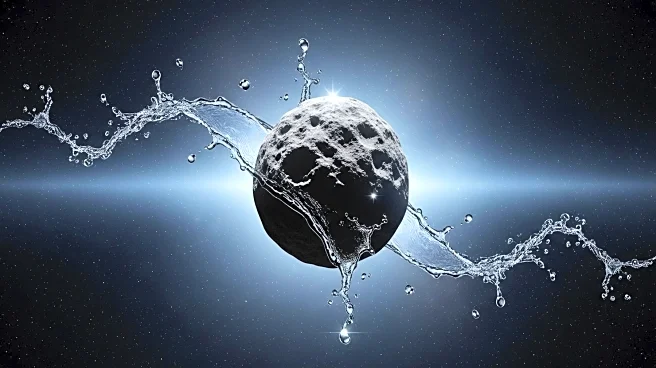What is the story about?
What's Happening?
Recent research has uncovered evidence suggesting that the near-Earth asteroid Ryugu may have once harbored flowing liquid water. This discovery, published in the journal Nature, challenges previous assumptions that liquid water activity only occurred in the early solar system. The study, led by Tsuyoshi Iizuka from the University of Tokyo, involved analyzing rock samples from Ryugu collected by the Hayabusa2 probe. The findings indicate that water may have persisted on the asteroid far longer than previously thought, potentially altering the understanding of how Earth acquired its water. The presence of flowing water on Ryugu suggests that ice-packed asteroids could have collided with Earth, delivering substantial amounts of water.
Why It's Important?
This discovery has significant implications for understanding the origins of Earth's water and the formation of other celestial bodies. If asteroids like Ryugu retained water for extended periods, it suggests that the building blocks of Earth were wetter than previously believed. This could reshape theories about the delivery of water to Earth and other planets, impacting scientific perspectives on planetary formation and the potential for life elsewhere in the universe. The research opens new avenues for studying the long-term fate of water in space and its role in shaping planetary environments.
What's Next?
Further research is needed to understand the mechanisms that allowed water to persist on Ryugu. Scientists suspect that an impact event may have caused the water to thaw, but more data is required to confirm this hypothesis. Future missions to asteroids and continued analysis of samples could provide additional insights into the history of water in the solar system. These findings may also influence the search for water on other celestial bodies, guiding exploration strategies in the quest to understand the distribution of water in space.
















